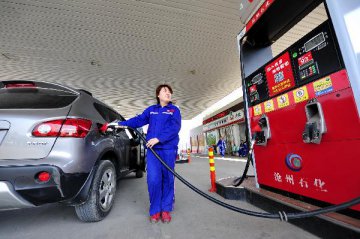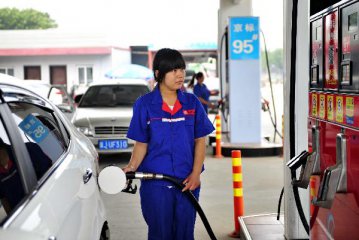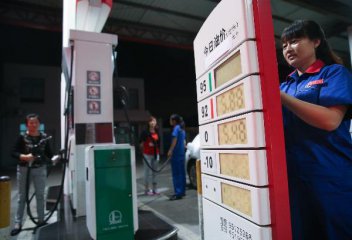
China would basically remove control on product oil pricing around 2017, said China Petroleum and Chemical Industry Federation (CPCIF).
CPCIF has worked out a series of documents guiding development of petroleum and chemical industry in 2016-2020, the Xinhua-run Economic Information Daily reported. Included are the development guidance on petroleum and chemical industry in 2016-2020, two special development plans and development plans for 20 specific sub-sectors.
China plans to call off windfall tax on crude oil production, establish national risk exploration fund and prompt taxation and fees reform of product oil, according to the report. China also would form unified crude oil trading qualifications and ease restrictions on crude oil imports by deepening crude oil trading system.
Administration on quota of product oil exports would be optimized and building of crude oil futures market would be accelerated by tapping favorable policies in free trade zone and bonded areas.
Revenues from main operation in petroleum and chemical industry would grow around 7 percent annually on average in 2016-2020 and increase to around 19.8 trillion yuan in 2020, according to CPCIF.
China would pour efforts to develop new chemical materials, biological chemical, coal chemical, producing services and other strategic new sectors. ' The country aims to make breakthroughs at high-end polyolefin plastics, engineering plastics and special-purpose rubber and realize over 80 percent of self sufficiency rate in the sector by 2020.
China plans to build six coal chemical bases in east Inner Mongolia, Yili of Xinjiang, north Shaanxi, Ningdong of Ningxia and others. By 2020, China would be able to produce 10 million tonnes of coal-based synthetic oil, 10 billion cubic meters of coal-based synthetic gas and 13 million to 15 million tonnes of coal-based olefins. Efforts would be made to produce 5 million tonnes of biological ethanol and 2 million tonnes of bio fuels each year around 2020.






















Latest comments